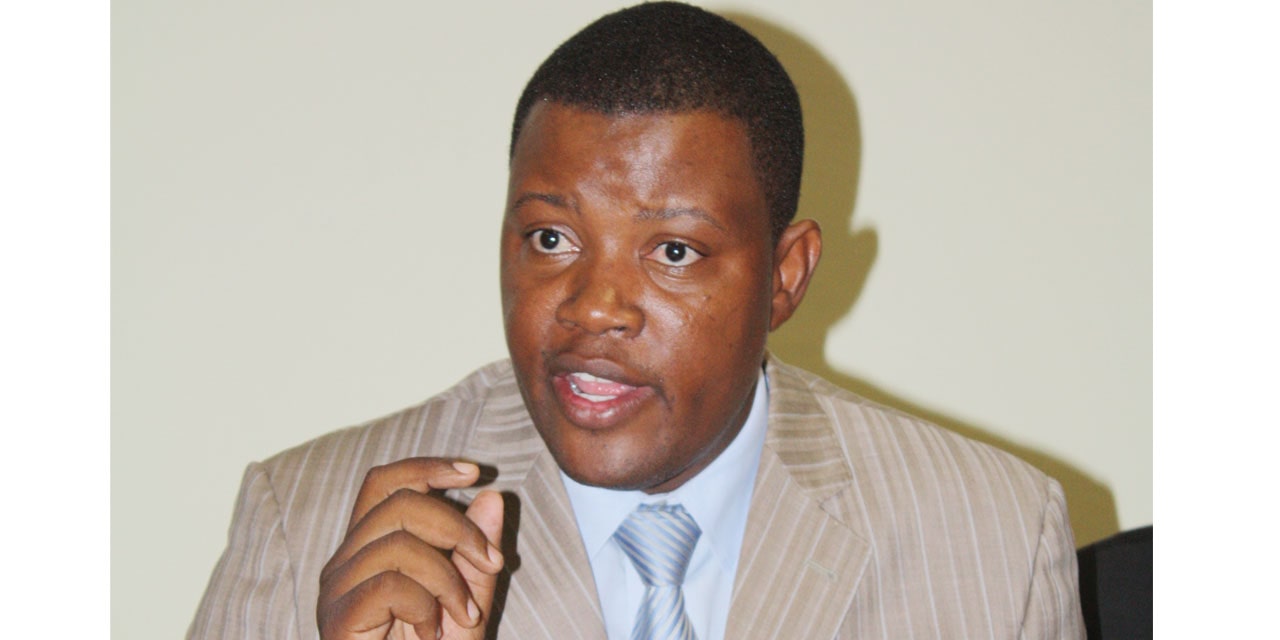Martin Endjala
The Namibian government has been advised not to ignore good policy alternatives offered by the opposition, while the latter has also been urged to formulate alternative policies rather than just always condemning government decisions.
UNAM political science professor and analyst Ndumba Kamwenyah said that a recent appeal letter by the Popular Democratic Movement leader McHenry Venaani’s to the Head of State, Hage Geingob, imploring the government to introduce innovative policy measures to affect economic rejuvenation is a case in point.
In the letter Venaani said that he is of the view that bold policy measures and innovative financing instruments are needed in order to affect economic rejuvenation.
“It is common cause that Namibia’s economic growth is largely dependent on investments in the primary sector. As a result, I firmly believe that value addition and beneficiation of minerals before exportation thereof should be one of the key drivers of Namibia’s economic rejuvenation,” Venaani opined.
In the same vein, he highlighted the integral role of the agricultural sector in Namibia.
He expressed concern over the N$100 million worth of maize imported by Namibia from South Africa and Zambia at beginning of this year, which makes for a bleak reading of the state of the agricultural sector in the country. He stressed that new ingenious policies are required to achieve a fundamental and sustainable transformation of agriculture.
Kamwenyah stated that the PDM’s appeal has a point, given the situation that the country finds itself in, saying the government needs to come up with new creative interventions to make the economy more vibrant.
However, another political analyst Henning Melber said that the PDM leader is outlining problems without providing solutions. “The letter rather testifies to the problem that the official opposition is more of the same, but not providing any meaningful alternative in terms of policy matters,’’ Melber highlighted.
He further pointed out that the flowery language is suggesting alternatives, which at a closer look are not offered. “What is lacking is a fundamental re-conceptualization of how best to tackle the challenges in times of climate change exacerbating the economic crisis, said Melber.
Additionally, Melber accentuated that the focus on value addition to mining products is an old story, but it does no harm to repeat it over and over again, while lamenting that there are noconcrete recommendations on how best to achieve this.
Similarly, he added that Venaani’s reference to the overproduction of cement and to use it as a
proposal to solve or at least reduce the housing crisis by making use of this building material for construction of more housing units, does not answer the question of how to finance it.
On the issue of maize imports, the political analyst said that it is another red herring, pointing out that the solution can clearly not be to cultivate more maize locally, given the natural constraints and the amount of water required.
He continued by saying that the alternative should rather be to replace consumption patterns, enhance production of local grains suitable for production under the given climate conditions and to promote lifestyle patterns which are compatible with more self-sufficiency in food.
Melber further pointed out that Venaani’s reference to oil exploration does not engage with the challenges to replace fossil energy with renewable energy and the opportunities Namibia offers for solar and wind energy.
“There is not a single reference in the two pages to alternative energies and climate change adaptation.’’
He said the opposition politician’s interventions are more of the same and offers no solutions.
Melber said that policy formulation and implementation require a committed public service and policy makers in the ministries. “A president alone is not the one to fix matters. Venaani shows by his approach already that he is not having a grasp of the real challenges and how to address these best”.
Moving onto the much hyped about green hydrogen, Kamwenya said too much energy is being put into it, while it is a long term intervention.
“The green hydrogen intervention is enjoying high priority, which is good, but we should not neglect other current issues which are the bread and butter of many livelihoods, of which many are feeling the pinch of the economy due to high prices of food and rates and taxes of the municipal bills.’’
The political analyst further advised that technocrats like the Namcor MD Immanuel Mulunga to shy away from making political statements or responses and to rather explain how the process works.
He was referring to the response of Mulunga about Venaani’s call that the oil agreements government entered into with prospecting company and operators should be renegotiated. Mulungu said in response to the letter that was addressed to the Minister of Mines and Energy that the opposition politician lacks understanding of the oil industry.




